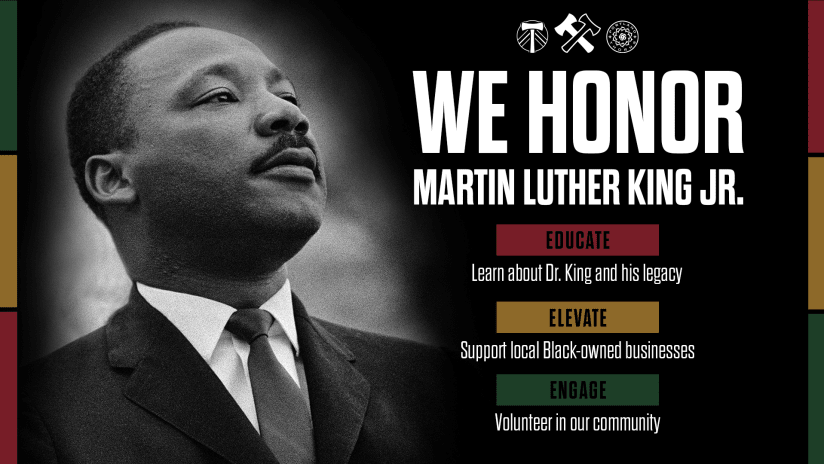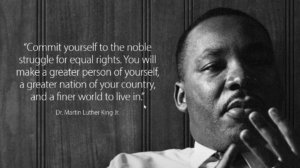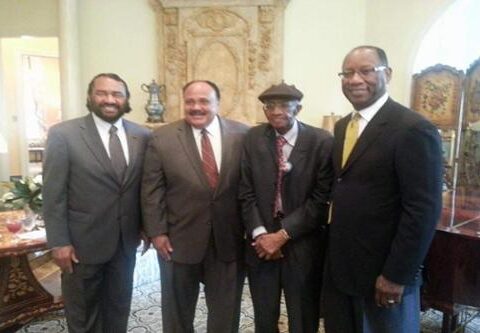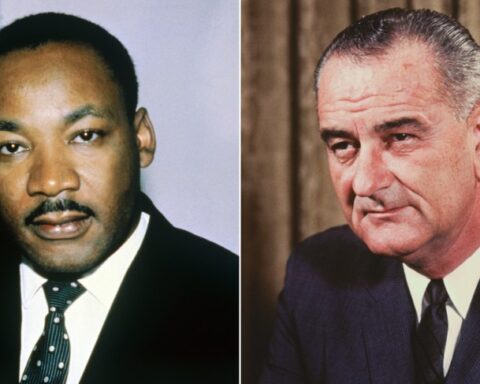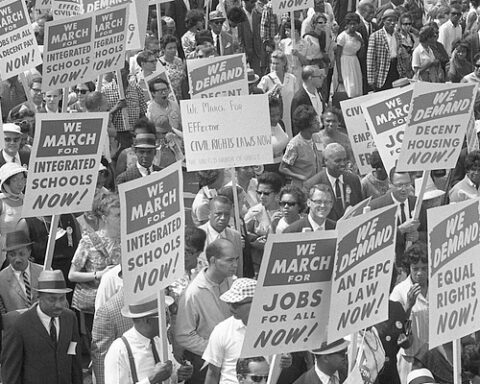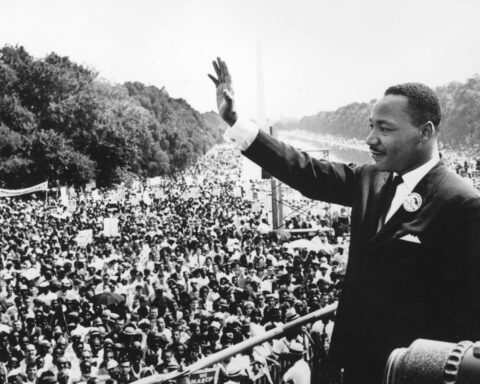By Janice Sage
Each year on the third Monday of January we observe Martin Luther King, Jr. Day and reflect on the work that still needs to be done for racial equality. This January 17, make the holiday more than just a day off and take time to reflect and take action on civil rights issues across the globe.
The concept of Martin Luther King, Jr. Day as a holiday was promoted by labor unions. After King’s death, U.S. Representative John Conyers and U.S. Senator Edward Brooke introduced a bill in Congress to make King’s birthday a national holiday. The bill first came to a vote in the U.S. House of Representatives in 1979; however, it fell five votes short of the number needed for passage. Two of the main arguments mentioned by opponents were that a paid holiday for federal employees would be too expensive and that a holiday to honor a private citizen would be contrary to longstanding tradition, as King never held public office. At the time, only two other figures had national holidays honoring them: George Washington and Christopher Columbus.
Soon after, the King Center looked for support from the corporate community and the general public. The success of this strategy was cemented when musician Stevie Wonder released the single ‘Happy Birthday’ to popularize the campaign in 1980 and hosted the Rally for Peace Press Conference in 1981. Six million signatures were collected for a petition for Congress to pass the law and is considered the largest petition in favor of an issue in U.S. history.
President Reagan originally opposed the holiday, citing cost concerns. But on November 2, 1983, Reagan signed a bill, proposed by Representative Katie Hall, to create a federal holiday honoring King. The bill had passed the Senate by a count of 78 to 22, and the House of Representatives by 338 to 90. The holiday was observed for the first time on January 20, 1986. It’s observed on the third Monday of January rather than directly on Martin Luther King, Jr.’s birthday because it follows the guidelines of the Uniform Monday Holiday Act.
MLK DAY STATS
6,000,000 Signatures
Six million signatures were collected for a petition to Congress to pass the law making Martin Luther King, Jr. Day a federal holiday. A petition only needs 150 signatures in order to be searchable within the White House database. To cross the second threshold and require a response, a petition must reach 100,000 signatures within 30 days. Stevie Wonder helped to achieve this feat by releasing his iconic single ‘Happy Birthday,’ raising awareness of the fact that there should be a day commemorating Dr. King’s life and questioning why people in power would be opposed to celebrating someone fighting for peace and justice.
250,000 March on Washington
During the March on Washington for Jobs and Freedom, Dr. King delivered his famous “I Have A Dream” speech on the steps of the Lincoln Memorial. The demonstration was attended by more than 250,000 people. Though many people are familiar with the famous speech, very few know that the iconic “I have a dream” portion was entirely improvised. If you watch the video of King giving the speech, you’ll notice for the first 2–3 minutes, he’s reading the speech prepared for him. But at some point, King pauses. Within this pause, the gospel singer and King’s good friend Mahalia Jackson yells out, “Tell’em about the dream!” At this moment, Reverend King took his crowd to church, as he preached to a diverse crowd of supporters his dream for a better and non-violent future.
25,000 March from Selma
The Selma March, also referred to as the Selma to Montgomery March, was a political march from Selma, Alabama to the state’s capital, Montgomery, occurring from March 21 to 25 in 1965. Led by Martin Luther King, Jr., the march was the culminating event of several emotional weeks during which demonstrators twice attempted to march but were stopped, once violently, by local police. 25,000 people participated in the roughly 50-mile march. These events became a landmark in the American civil rights movements and directly led to the passage of the Voting Rights Act of 1965.
